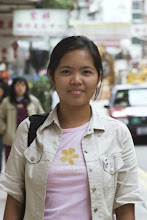
In my regular reading at home, I came across to one of my oldest books way back in college -- The Politics of Education by Paulo Freire, 1985 edition, first published in 1921.
The green book as I code it, like the orange book for Social Welfare and Social Work by Thelma Lee-Mendoza, was--at that time of reflection--the perfect read for my continuing engagement as a development/social worker.
Let me share with you the highlights of some of the chapters that I have read:
Chapter 2: Adult Literacy: The Ingenuous and the Critical Visions
"By relying on words that transmit an ideology of accommodation, such literacy work reinforces the 'culture of silence' that dominates most people. This kind of literacy can never be an instrument for transforming the real word." This is in the context of the type of education that we have, sugar-coating reality, practically painting a rosy picture of the world through textbooks, ignorant of the deeper meaning of the learner's existence in his or her space.
Hence: "Learning to read and write cannot be done as something parallel or nearly parallel to the illiterates' reality. The learning process demands an understanding of the deeper meaning of the word."
As Freire put it, the learner and educator should establish a dual relationship that will enable both parties to express and acquire critical thinking and learning, transcending the boundaries of the literal meaning of the words.
But what does critical thinking means? I agree with Freire in his quotation of a peasant's response to this: The peasant said that it is "thinking correctly, seeing reality as it is."
This led me to the next chapter, indeed a reinforcement of my alma mater's strong mandate (yes, I say it is a mandate) on social workers crucial role in social transformation.
Chapter 3: The Social Worker's Role in the Process of Change
Freire's articulation on the chapter theme began by reflecting (out of the box) on the true meaning of the words/phrase: (1) social worker and (2) in the process of change.
He said: "If a social worker chooses reactionary options, his or her methodology and work will be oriented toward blocking change. Rather than perceiving the social worker's task as one by which, through a critical, common effort, reality unveils itself to him or her and to those with whom he or she works, she or he will be preoccupied by mythicizing reality. Instead of developing opportunities fro problem-posing to challenge him or her and the men and women with whom the he or she should be communicating, his or her tendency will be to favor welfare-syndrome solutions.
This type of social worker as Freire described "is motivated to assist in the 'normalization' of the 'established order,' which serves the power of the elite's interests."
Freire's sharp characterization of a type of a social worker which he made almost a century ago, still applies today especially in the times of global financial crisis. Progressive social workers have continued creating discourses in redefining the meaning of social work, and how the profession will play its role in responding to the realities and calls of the time.
I remember in a class discussion when I was still an undergraduate BS Social Work student in UP Diliman, Prof. Malou Alcid challenged us by asking: "What is social work for you?" My response was something like this: "It is a profession by which the worker engages and empowers individuals, groups and communities not only to respond to their own issues and problems but also to become active players in social transformation."
Indeed, a social worker needs to surpass the traditional role she or he played during the colonial and post war era that is more of charity and dole-outs. It is the call of the times that a social worker, especially the young, step up by means of taking the lead role in creating a critical mass that will challenge the status quo. While it is true that a rumbling stomach of a beggar, a bruised face of a battered woman, and a devastated innocence of a prostituted child need to be attended first, it is our duty and moral responsibility to go beyond by raising their understanding of the interplay of social structures and dynamics in their everyday lives.
We need social workers that will fight for the rights of the people against poverty, injustices and oppression. We need more voice and muscle that will pressure the present regime to surrender to the demands of the people. We don't need charity workers. What we need are social workers.
It was at this point that I again realized why in my third year as a BS Statistics student in UP that I finally decided to follow my heart and shifted to a course where I truly belonged. I may have abandoned my dream of getting a fair chance of becoming rich (well that was my belief), but I truly believe that I still had become richer, day by day. Wealth that is not earned through money but with the constant yearning to serve the country and its people -- a social worker at its finest.
In this time of political, social and cultural crises, I urge all especially my fellow social workers to immediately respond to the calls of the time. There is no other time but now. There is no I but we.
We must not allow business as usual. ##
8 September 2009
International Literacy Day

No comments:
Post a Comment